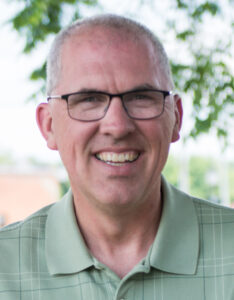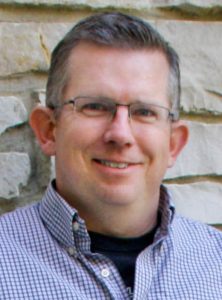On the same day Baptist News Global published an analysis showing severe underrepresentation of women on both the first and the second Southern Baptist Convention task forces addressing sexual abuse, the new president of the convention issued a video explaining how he chose the new nine member group of seven men and two women.
Texas pastor Bart Barber said he initially approached 12 women and 10 men about service on the Abuse Reform Implementation Task Force but received multiple rejections.
“Some people have asked why so many men and so few women,” Barber acknowledged in the video.

Bart Barber
The answer, he said, is that he first developed a list of skills that would be needed on the task force, then brainstormed names and gathered recommendations to create a list of candidates.
“I invited and asked 10 men and 12 women. I actually invited more women than men to come and serve on the task force. I had three men tell me no, or we ran into some kind of a problem. I had nine women tell me no. And I had one woman that we just had real trouble connecting for a conversation. And it got close on time, and I had to move on.”
Thus, while he asked at least 12 women to serve, he found only two among that group willing to serve, he explained. “Some of you might say, ‘Well, you asked the wrong women.’ Apparently so, but not on purpose.”
Reasons for not serving
Both women and men declined to serve on the task force for several reasons, he said, but there were two common issues: the time commitment and the potential exposure to condemnation via social media.
For many of the women, “it was the time commitment,” Barber said. “And really, this is a good opportunity for us to appreciate the women who are in the Southern Baptist Convention. Often, they’re busy professionals who also carry a disproportionate share of their responsibilities at home with family. Some of them are taking care of young children. Some of them are taking care of elderly parents. And honestly, I think we fail to realize sometimes how much SBC women are doing in their lives.”
“The kinds of reactions that happened on Twitter today exemplified the reasons that some of them were reluctant to accept the role serving on the task force.”
But that’s not the only factor, he added. “For some of them, honestly, the kinds of reactions that happened on Twitter today exemplified the reasons that some of them were reluctant to accept the role serving on the task force. I’m not hating on folks on Twitter who have opinions about things that happen in SBC life. I have opinions about things that happen in SBC life. And I commenting on Twitter about them too. It’s just that not everybody’s ready to sign up for that.
“A lot of people who are very thoughtful, people who could contribute a lot to SBC life, will step back from opportunities they have to serve because they’re concerned about what all they’re gonna have to deal with,” he said. “And I hate it that maybe some of the people who could have served well on this, who said no, are looking at SBC social media today and thinking, yep, I’m glad I didn’t do that.”
Barber acknowledged that “most of the survivors” of sexual abuse are women and said, “I wanted more women to be a part of this task force. But I also wanted us to get our job done. And I started just to really run past the time I allotted for appointing the task force, trying to change the demographics.”
Defense of one appointment
The confrontational social media culture Barber referenced is heavily influenced by the right-most segment of the SBC, driven by a group of Calvinist pastors who are stern complementarians and believe the SBC has fallen into liberalism. A few key figures — mainly those who hold no elected office within the SBC but have large Twitter followings — use social media almost daily to press their concerns.

Todd Benkert
That crowd used social media and direct messages to Barber to protest one particular appointment to the task force, he indicated. That person is Todd Benkert, pastor and lead elder of Oak Creek Community Church in Mishawaka, Ind.
Benkert is a pastor who also is active on social media and has directly challenged some of the far-right group. Allies of one East Texas pastor who is extremely active in Twitter commentary have accused Benkert of leaking an article written by that pastor’s wife in which she mentioned her own history of being abused.
Baptist News Global eventually published an article about the situation but did not include any reference to sexual abuse. Nevertheless, the BNG article and Benkert’s alleged role in the larger behind-the-scenes machinations became a flashpoint for advocates of this pastor and his wife.
None of the information published by BNG came from Benkert.
Barber devoted 13 minutes of his 31-minute video to explaining and defending Benkert’s appointment to the task force.
“It’s a very unfortunate event that reveals how far trust has been eroded in two directions within the SBC.”
While there were allegations that Benkert leaked a private document that cast the East Texas pastor and his wife in a bad light, there is no actual evidence Benkert did that, according to Barber. “Nobody’s even really alleging that Todd had anything to do with leaking that document. In fact, I think from what I can tell, there’s really broad agreement about the basic details of what happened. There’s just a lot of disagreement about how to speak about what happened. And I think it’s a very unfortunate event that reveals how far trust has been eroded in two directions within the SBC.”
Barber also revealed in the video that he personally intervened to try to stop BNG from publishing the article about the East Texas pastor’s wife’s writing. That BNG article was based on a revised version of the woman’s story that was published online by an organization her husband helps run, not on the original leaked version that had been emailed to BNG by an anonymous source.
That pastor “reached out to a lot of people for help,” Barber said. “He reached out to me for help, and I called Dwight McKissick and asked Dwight McKissick to try to get David Bumgarner not to release that story in Baptist News Global.”
The BNG article was written by Bumgardner, who at the time was serving as a Clemons Fellow with BNG. Also at the time, Bumgardner was a member of McKissick’s congregation in Arlington, Texas. Neither McKissic nor Barber had any direct contact with the editor of BNG on this issue.
This entire episode is “a sad example of where people don’t trust each other” in the SBC, Barber said. “Not everyone can take being hated on the internet. Some of us just eat it for breakfast and then go about our day, but not everybody’s like that. Not everybody wants to be like that.”
“Not everyone can take being hated on the internet.”
The bottom line, Barber said, is this: “I don’t think Todd is in a conspiracy to shame or blackmail or leak documents for anybody who’s a sexual assault survivor. So with all of that said, the question people ask, one guy really kindly said, ‘Even if Todd’s innocent and just got caught in the wrong place at the wrong time, there are millions of Southern Baptists. Why would you choose Todd? And I’m so thankful you’ve asked that.”
The answer is that Benkert has been a strong advocate for sexual abuse survivors in the SBC, he continued. “This year at the SBC annual meeting, there was a booth at the SBC Pastors Conference in Anaheim just for sexual abuse survivors, because Todd Benkert did that. This year in Anaheim at the SBC, there was a breakout session to teach trauma-informed ministry to SBC pastors and ministers. And that existed because Todd Benkert did that. Who else is doing things like that? Todd has worked really hard on his own initiative to build strong relationships with SBC survivors. And I just don’t know any other pastor in the SBC who’s done more to help those survivors. I couldn’t imagine having this task force and ruling Todd out from serving on this task force because, again, it’s not voting for who’s most likely to succeed or most popular in high school. Ultimately this is about a task force that needs to have good ideas about preventing and responding to clergy sexual abuse.”
It’s true that Benkert and Barber are friends, he added. “He’s been my friend for a long time. Some people say it’s a good old boy network, but I gotta tell you, I’ve got a lot of friends who haven’t been appointed to anything yet. And most of the people on this task force, I’ve never sat in a room with and had a conversation. A lot of them, I had to introduce myself to them on the initial phone call. I’d never spoken to them before, so it’s not a good old boys club. It is just that Todd has worked hard at this, and I think he has good ideas.”
The ultimate test
The ultimate test of the task force will be what they propose at next year’s SBC annual meeting, Barber asserted.
“I don’t really know yet whether I’ve done a good job or a bad job, nor can you, because I’m not nominating people to the Southern Baptist Hall of Fame. I’m not handing out medals of honor. The measure of this task force is not how many people on it I like, or how much I like them or dislike them.”
Instead, the measure will be “whether they bring good recommendations to New Orleans that you pass when they come to you as a messenger body. And then whether those recommendations when implemented actually reduce and prevent sexual abuse in our churches and improve our responses within our churches to sexual abuse. That’s what it’s for is to get that done. And so there won’t be a mission accomplished banner go up until we’ve done that.”
Related articles:
Where are the women on the SBC’s first and second sexual abuse task forces?
In Sunday sermon, SBC presidential candidate defends deacon he removed over past ‘abusive’ behavior


